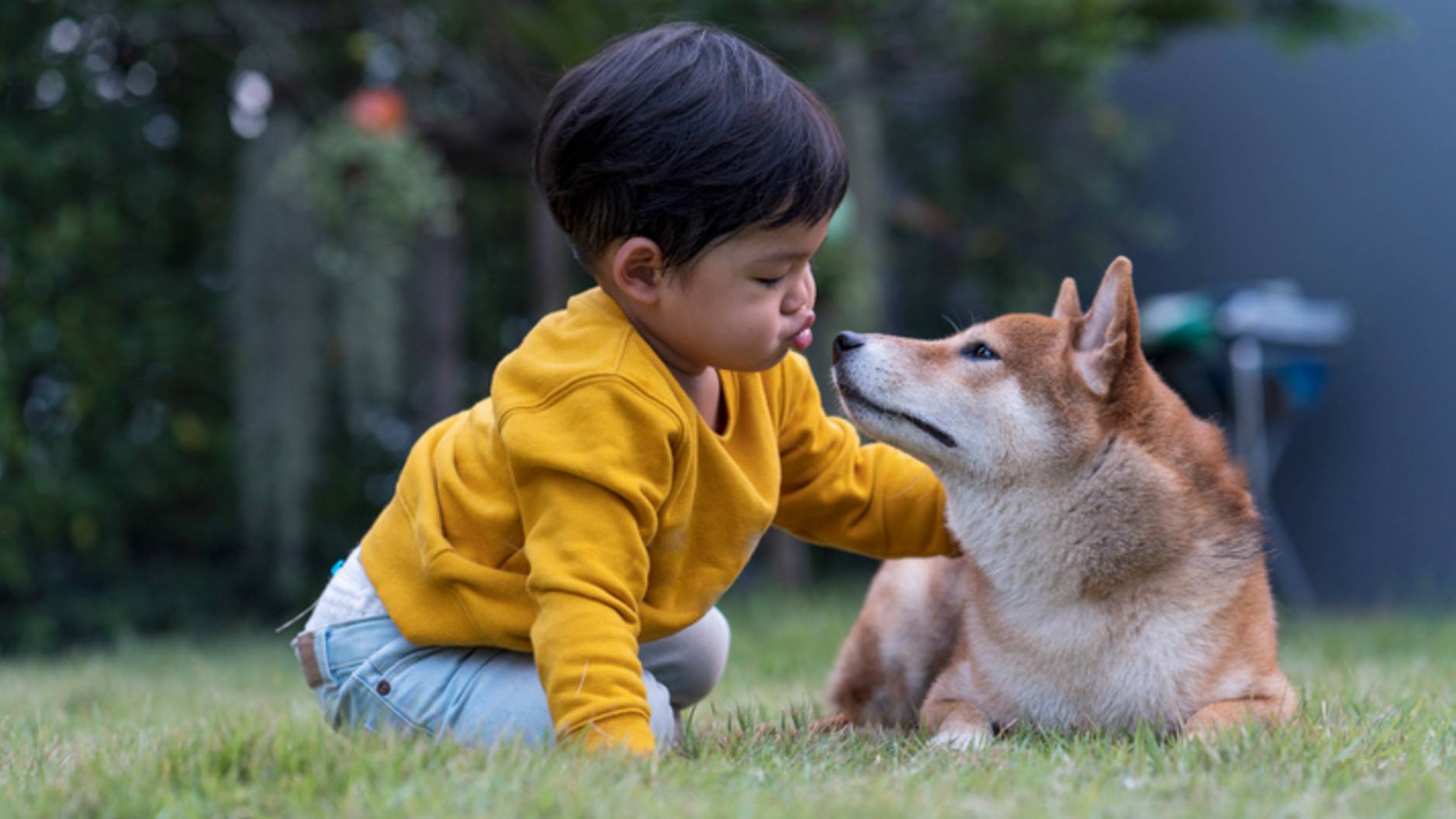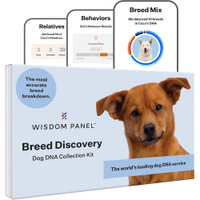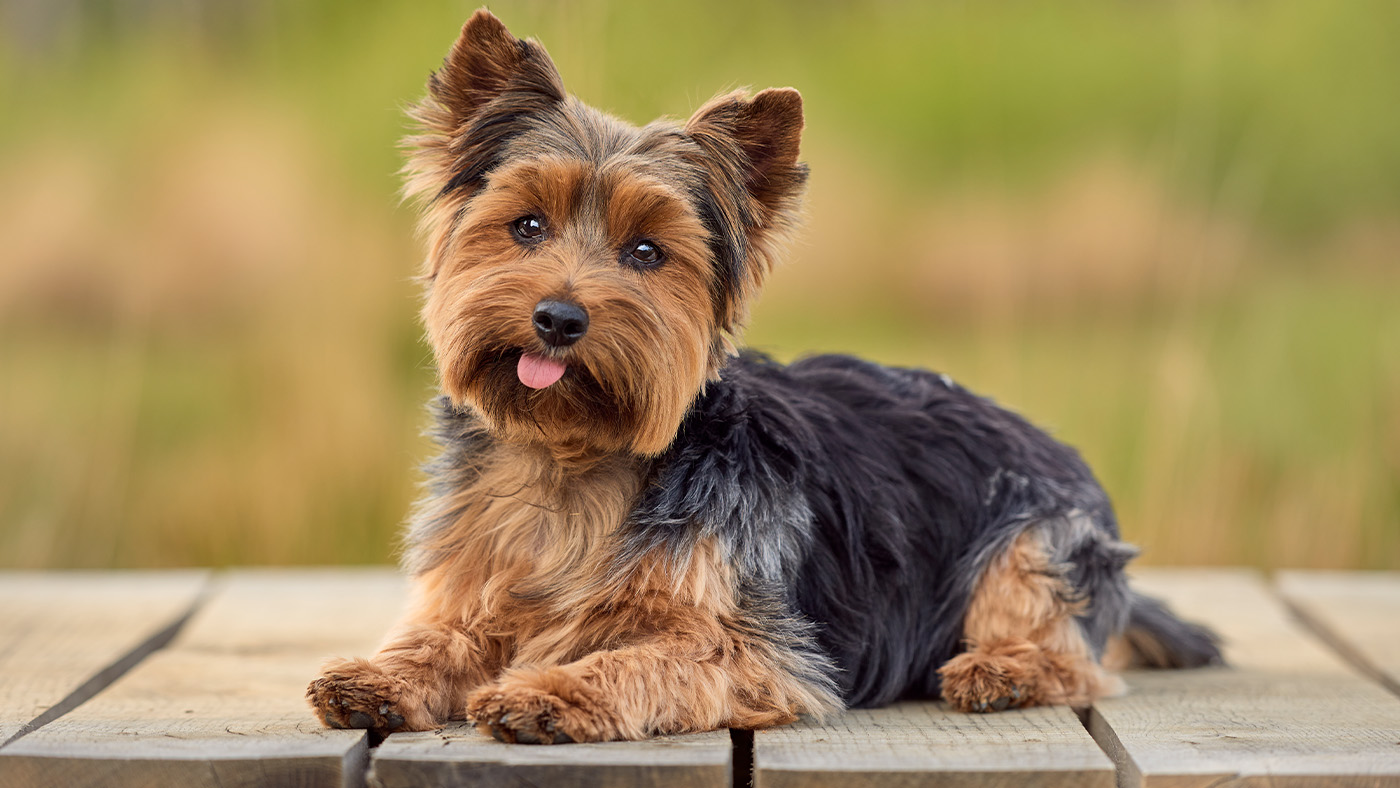Shiba Inu: Breed profile
A popular dog breed known for its unique appearance and mannerisms, the Shiba Inu can also be surprisingly feisty

Shiba Inus are gorgeous dogs which look like a fox but sometimes behave like a cat – particularly in the way they try and groom themselves and have an air of aloofness. But right from the start, we have to warn you. As sweet and cute as they may look, they can also be rather feisty and sometimes aggressive. It's all about how you set about handling them and whether your training techniques can turn them from stubborn, independent souls into the loyal pets that everyone knows they can be.
As the name may suggest, these dogs hail from Japan and they are one of six spitz breeds that originate in the Land of the Rising Sun. Their ancestry of this Japanese breed has been traced back as far as 7000 BCE but they are understood to have been the result of breeding in 300 BCE when immigrants to Japan sought a dog that would help them to hunt small animals in the country's mountains.
Over the years, Shiba Inus have become very popular. Introduced to western countries about 60 years ago, Japan's smallest and oldest breed has been taken to many a heart. They nearly became extinct during World War II so we're very fortunate that they are not only still around but thriving. You can also take your pick of four colors, from the traditional red to black-and-tan, goma and white. All are equally stunning.
How much exercise does a Shiba Inu need?
Life expectancy: 12-15 years
Average weight: Male: 24 lbs/11 kg Female: 20 lbs/ 9 kg
About the same as: A car tyre
Shiba Inus love to get out and about in the fresh air but they don't actually need an excessive amount of exercise. Around an hour each day of walking will suffice although they can keep going for much longer if you decide to embark on a hike! Indeed, given they were bred in the mountainous regions of Japan, they're also more than capable of negotiating a few hills along the way to help keep them fit. They also enjoy swimming so let them loose in water – but only if you feel it's safe to do so.
Being outside with a Shiba Inu certainly has many advantages. As well as providing an outlet for their energy you'll be introducing the breed to sights, smells and sounds that will help to socialize them to different environments. This is vital for their overall well-being. If you think it's safe to take them off their leash, you could also try playing some games such as fetch and hide-and-seek. At the very least, you should also consider investing in good quality dog toys. This way you'll be sure of exercising their mind as well as their body.
Even so, as you'll see by reading on, it may be better to constrain games to your own secure yard, certainly to begin with. Ensure those fences are high enough to prevent a Shiba Inu leaping over and escaping and engage their mind with puzzles. Take opportunities to play with a Shiba Inu indoors as well and incorporate exercise into their training. The results will be totally worth it.
Are Shiba Inus easy to train?
Suitable for: Anyone who can devote a lot of time to early training
Not suitable for: Families with very young children
Temperament: Confident, stubborn, alert
Shedding: Moderate to high
Shiba Inus are rather difficult breeds to train. Their stubborn nature and independent mindset means they will often refuse to obey commands. As such, you'll have to work that little bit harder to have any chance of persuading them to act on your instructions but by being consistent, remaining patient and paying them just the right amount of attention, you'll eventually motivate these dogs to toe the line.
One thing is certain: you must socialize Shiba Inus from a very young age, maybe even considering taking them to classes. They can become aggressive in unfamiliar surroundings so by introducing them to as many environments as you can and getting them used to being around people and other animals, you will help ensure they become well-balanced. Refrain from shouting or punishing, give them lots of praise and treats and don't encourage rough play and you'll generally be on the right lines.
It's also crucial that you get Shiba Inus used to being on a leash. They hate being restrained but when you're taking them outdoors, they need to collared otherwise they can run off, chase after small animals or become aggressive if they meet other dogs. Luckily, house training is a far simpler task. Shiba Inus are clean dogs and they'll soon learn where they can and cannot do their business. They also take well to crate training.
Are Shiba Inus good with kids?

If you have very young children, it's not recommended that you have a Shiba Inu around the house. They don't like being picked up, prodded or grabbed and doing so runs the risk of the dog becoming aggressive. Since curious kids tend to be constantly touching and poking, there's a chance they could become injured. This is much less of a problem with older kids, however, particularly if the Shiba Inu has been socialized from an early age and the children have been taught to be respectful around dogs.
What do Shiba Inus eat?
Traditionally, Shiba Inus were fed on fish, wild fowls and small game but so long as the breed is getting more than sufficient amounts of protein (around 30 percent) and their diet is well-balanced, you'll have a healthy dog on your hands (aim for about 15 percent fat). As puppies, you'd be looking at feeding them a cup of food spread over four or five small meals each day and, as adults, roughly the same amount can be spread over two meals.
It's perfectly fine to feed a Shiba Inu kibble or commercial wet food and there are lots of options out there so take a look at our guide to the best dog food. Likewise, you may want to create meals from scratch and lots of owners do that too. Lean beef, chicken, lamb, turkey and fish are all good choices. But beware: Shiba Inus are possessive dogs and they will guard their food from anyone they think will steal it from them.
Do Shiba Inus bark a lot?
No. They're not totally quiet but they only tend to bark when they have a reason to, usually because a stranger has approached the house. They can make some very odd noises, though, one of which is known as the Shiba scream. It's a whine-like vocalization which tends to be used if the dog becomes fearful, anxious, angry or even excited. Some owners find it funny; others think its annoying. If it happens too often, try and discover (and sort) the source of the problem.
Are Shiba Inus aggressive?

Yes, they can be aggressive especially if they are not properly socialized early on. As they grow older it becomes more and more difficult to redirect their aggression issues and you'll find their strong prey drive will kick in, they'll be far less tolerant of other dogs and may even take their anger out on other people.
The lesson there is clear: socialize and train a Shiba Inu early. Do that and, no, Shiba Inus are no more aggressive than any other breed and they be loyal, family pets and you will absolutely adore. They may still be territorial over their food, toys and other things they believe they own but it'll be controllable. A calm, consistent approach and plenty of exercise will work wonders.
Do Shiba Inus shed a lot?
Amount of shedding: Moderate-to-heavy
Easy to groom: Yes
General health: Good
Potential for weight gain: Moderate
Shiba Inus are fluffy double-coated dogs that have a stiff outer layer of fur over a thick, softer undercoat. They will shed moderately throughout the year and step up to heavy shedding for three weeks during the spring and fall. As such, you'll find the hair will get everywhere but brush every couple of weeks or so to remove most of the excess and, during the heavier periods, brush a couple of times each week. The grooming routine should also include regular clean of a Shiba Inu's teeth, the trimming of nails and sporadic baths. They're not a smelly breed and they like to clean themselves.
Wisdom Panel Breed Discovery DNA Kit | Amazon
Not sure exactly what breed your dog is? This kit screens for 365+ breeds – because knowing every detail about your dog helps you understand how best to care for them.
Shiba Inu health problems
Shiba Inus are generally healthy dogs and the best pet insurance will cover most problems. One thing to watch out for is potential obesity issues caused by overeating (go easy on those treats). Overall, however, you only really be wary of eye problems, hip dysplasia, patellar luxation and an allergy called atopy which tends to affect the feel, stomach, ears and skin folds and causing the dog to itch – this should prompt a trip to the vet who will be able to treat the condition. Of course, Shiba Inus can suffer from other illnesses such as epilepsy, cancer, heart disease that affect most breeds.
Should I get a Shiba Inu?
Shiba Inus are lovely companions. They're cute and playful, loyal and confident and they will make for a good watch dog but they're not without their problems. It's important to know what you could be taking on board from the start, especially if you feel you won't have the time or patience to socialize or train them extensively from a very early age. An aggressive, territorial and suspicious dog is not much fun to have around but if you put in the effort, remain assertive and consistent and work to motivate Shiba Inus in the way you'd like them to act, you will be richly rewarded.
Want to learn more about this breed? Here are our favorite Shiba Inu facts
PetsRadar Newsletter
Get the best advice, tips and top tech for your beloved Pets

David Crookes has been a journalist for almost 30 years and he has written for a host of magazines, newspapers, websites and books including the World of Animals Annual, BBC Earth, Live Science, The Independent and Tom’s Guide.
Born in England, he lives with two cats but he’s also keenly interested in the differences between the huge number of dog breeds – in fact, you can read many of his breed guides that he’s written in collaboration with vets here on PetsRadar.
With a lifelong passion for technology, too, he’s always on the lookout for useful devices that will allow people to keep their pets happier and healthier, and provide them more time to spend together.
David has a degree from Durham University, as well as postgraduate diploma in journalism from the University of Central Lancashire.

